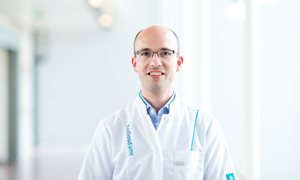6 November 2018
Housing
The study showed that the participants remain a vulnerable group 5.5 years after intake, especially regarding housing and finances. Nevertheless, the housing situation improved compared to the first measurement. At the start of the study in 2010, all participants were homeless. After 5.5 years, 57 percent of the participants were housed independently. At the same time, 36 percent of the participants remained in institutions, of which almost 39 percent were provided with assisted living. A few remained homeless or were marginally accommodated. According study coordinator Linda van den Dries, “There is certainly room for progress. However, independent housing may not be feasible or suitable for everyone.”
Personal finances
Compared to housing, the financial situation of the participants was less favorable at 5.5 years after intake. After the first debt restructuring projects ended, most of the participants still had debts. The main sources of income were welfare benefits or homeless allowances. Every month, the participants had around 200 euros to spend, not including rent and meals. Den Dries: “For many participants, this is not enough to pay off their existing debts. Paying off debt deserves much more attention in the context of social care.”
Maintain contact
According to den Dries, the participants in the study were still a vulnerable group 5.5 years after intake into social care. “The participants need extra help in finding housing, employment and a meaningful way to spend the day, as well as assistance in solving their financial problems. It is important that these forms of help are coordinated. Because the majority of the participants are housed independently, and in many cases the care programs have been terminated, it is important to be able to contact the participants and maintain contact with them. District social work teams could potentially play a role in this process. Providing the right kind of support is an important task for the municipality.”
The report on the study of the homeless population of Amsterdam can be found here.
The reports on the previous studies in the four largest cities in the Netherlands can be found here.
Linda van den Dries is member of theme Healthcare improvement science.
 Long after registering for social care, a large proportion of homeless people still have problems with aspects such as housing and personal finances. This was the outcome of a study conducted by Impuls, the research center for social care of Radboudumc. The 5.5-year study focused on the homeless population of Amsterdam. This is the first long-term study of the well-being of current and former and homeless people.
Long after registering for social care, a large proportion of homeless people still have problems with aspects such as housing and personal finances. This was the outcome of a study conducted by Impuls, the research center for social care of Radboudumc. The 5.5-year study focused on the homeless population of Amsterdam. This is the first long-term study of the well-being of current and former and homeless people.
Housing
The study showed that the participants remain a vulnerable group 5.5 years after intake, especially regarding housing and finances. Nevertheless, the housing situation improved compared to the first measurement. At the start of the study in 2010, all participants were homeless. After 5.5 years, 57 percent of the participants were housed independently. At the same time, 36 percent of the participants remained in institutions, of which almost 39 percent were provided with assisted living. A few remained homeless or were marginally accommodated. According study coordinator Linda van den Dries, “There is certainly room for progress. However, independent housing may not be feasible or suitable for everyone.”
Personal finances
Compared to housing, the financial situation of the participants was less favorable at 5.5 years after intake. After the first debt restructuring projects ended, most of the participants still had debts. The main sources of income were welfare benefits or homeless allowances. Every month, the participants had around 200 euros to spend, not including rent and meals. Den Dries: “For many participants, this is not enough to pay off their existing debts. Paying off debt deserves much more attention in the context of social care.”
Maintain contact
According to den Dries, the participants in the study were still a vulnerable group 5.5 years after intake into social care. “The participants need extra help in finding housing, employment and a meaningful way to spend the day, as well as assistance in solving their financial problems. It is important that these forms of help are coordinated. Because the majority of the participants are housed independently, and in many cases the care programs have been terminated, it is important to be able to contact the participants and maintain contact with them. District social work teams could potentially play a role in this process. Providing the right kind of support is an important task for the municipality.”
The report on the study of the homeless population of Amsterdam can be found here.
The reports on the previous studies in the four largest cities in the Netherlands can be found here.
Linda van den Dries is member of theme Healthcare improvement science.






